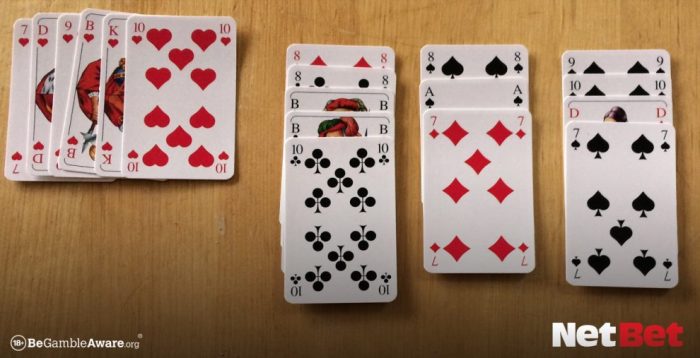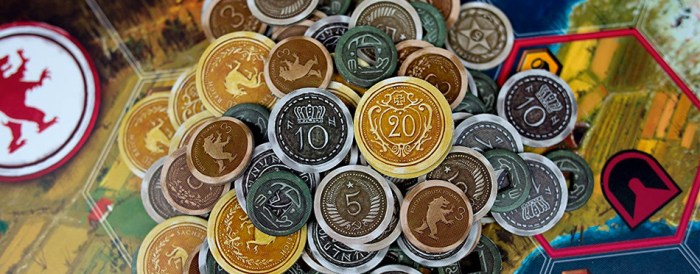
Gather ’round, solitude enthusiasts! If you’ve ever felt the delightful tension of a card game but preferred to keep the chaos of friends at bay, then solo card games are your golden ticket to card-playing paradise. Picture this: you, a deck of cards, and an epic adventure without the threat of a friendly brawl over whether the rules were followed.
These games invite you to dive into unique narratives, complex strategies, and a world of fun, all while wearing your favorite pajamas!
With an enticing range of solo card games available, from the cunningly strategic “Friday” to the mystically atmospheric “Onirim,” there’s something for everyone. Playing alone has its perks; it’s like showing up to a buffet and only taking the desserts! You can savor each moment, ponder every move, and revel in the satisfaction of beating your own high score—no pressure and all pleasure!
Introduction to Solo Card Games
Solo card games are the delightful realm where you can channel your inner card shark without the pressure of a table full of competitors. Picture this: it’s just you, your deck, and the sweet sound of shuffling as you embark on a journey of strategic genius—no need to share your snacks or worry about someone else’s poker face! These games cater to a wide audience, from those looking for a quiet evening activity to competitive individuals honing their skills.
The appeal lies in their flexibility and the sheer joy of self-indulgence in the realm of card play.The variety of solo card games on the market is as vast as a magician’s hat—replete with surprises and delights! From classic games like Solitaire and FreeCell to more modern innovations such as “Onirim” and “Friday,” there’s a flavor for everyone. Each game offers its own unique challenges and mechanics, ensuring that boredom is as elusive as a unicorn.
Whether you prefer the thrilling stakes of a single-player deck adventure or the thoughtful puzzle-solving of a card-based strategy game, the options are nearly endless, making it a treasure trove for solo enthusiasts.
Benefits of Playing Solo Card Games
Engaging in solo card games provides a spectrum of benefits that enhance the gaming experience. It’s not just about playing; it’s about enjoying the process and gaining various skills while you’re at it. Consider the following advantages:
- Flexibility in Timing: With solo card games, you set the clock! Whether it’s a quick five-minute session or an epic three-hour marathon, the choice is wholeheartedly yours.
- Cognitive Skills Improvement: Playing solo sharpens your problem-solving skills and enhances strategic thinking. It’s like giving your brain a workout, but without the sweaty gym socks.
- No Social Pressure: Forget about social faux pas or the awkward moment when someone takes too long to make a move. You can bask in the glory of your own decisions without the fear of judgment!
- Self-Paced Learning: Solo games allow you to learn at your own pace, which means you can spend an eternity pondering that one critical move without anyone tapping their fingers impatiently.
- Stress Relief: Playing alone can be a fantastic way to unwind. Dive into your game, and let the world melt away like ice cream on a summer day.
Playing solo is about embracing your inner card magician—it’s just you, the cards, and the thrill of victory.
Popular Solo Card Games

Solo card games have taken the gaming world by storm, giving players a chance to flex their strategic muscles without the need for a game night entourage. Whether you’re dodging dangerous jungle beasts in “Friday” or navigating dreamscapes in “Onirim,” these games offer a delightful blend of challenge and fun. Let’s dive into some of the most popular solo card games, each boasting unique mechanics that keep players coming back for just one more round.
Mechanics of Top Solo Card Games
The mechanics of solo card games often revolve around a few core themes: resource management, hand manipulation, and strategic risk-taking. Here’s a closer look at two standout titles:
- Friday: In this game, players take on the role of Robinson Crusoe’s trusty sidekick, Friday, battling the challenges of survival on a deserted island. The mechanics involve managing a hand of cards representing dangers and adventures. Players must decide whether to tackle these threats head-on or train their skills to improve their chances of survival. The twist? You have to risk losing cards to reshape your deck, keeping the game fresh and unpredictable.
- Onirim: This game thrusts players into a dream world where they must navigate through labyrinthine paths to unlock doors leading to freedom. The mechanics here are heavily based on card sequencing and strategic placement. Players draw and play cards to create paths while managing a limited hand of resources. The catch is, if you run out of cards too soon, you may find yourself trapped in the dream forever.
Talk about a nightmare!
Comparative Strategic Depth of Solo Card Games
When comparing the strategic depth of different solo card games, it’s essential to consider how each game’s mechanics encourage decision-making and planning. Some games allow for more complex strategies, while others are straightforward in their approach.
- Friday: This game is often praised for its depth, as players must balance immediate survival needs with long-term growth. Decisions can lead to either a well-honed deck or a perilous downfall.
- Onirim: While also strategic, the gameplay revolves more around quick thinking and adaptability. The randomized nature of the cards often means players must pivot their strategies frequently, which keeps the tension high but may lack the depth of long-term planning found in “Friday.”
- Other Notable Mentions: Games like “Solitaire” and “Card Crawl” also provide unique challenges, though they may offer varying degrees of strategic complexity depending on the player’s familiarity with the game mechanics.
Thematic Solo Card Games and Their Unique Features
Thematic solo card games often immerse players in rich narratives, enhancing the experience beyond mere mechanics. Here are some examples of thematic games that bring something special to the table:
- Arkham Horror: The Card Game: Players become investigators in the Lovecraftian universe, facing eldritch horrors and solving mysteries. The game’s narrative-driven quests and evolving story arcs keep players deeply engaged.
- Gloomhaven: Jaws of the Lion: This game combines tactical card play with a fantasy adventure, where players explore dungeons and battle monsters. Its deep lore and character progression enhance the thematic experience.
- Hostage Negotiator: In this intense solo game, you assume the role of a negotiator trying to save hostages from a dangerous situation. The tension builds as you make critical decisions that can lead to either success or failure.
Connection to Board Games and Card Games
Solo card games are like the quirky cousin at a family reunion—somewhat different from traditional board games, yet undeniably part of the same family tree. While board games often thrive on social interactions, solo card games embrace the lovely solitude of a one-player experience, allowing you to channel your inner strategist without the distractions of rival players. Think of them as a cozy night in with your favorite snacks, while board games might be more akin to a raucous party where you compete for attention and snacks alike.The relationship between solo card games and traditional board games is rooted in their shared mechanics, themes, and objectives.
At their core, both types of games involve strategy, chance, and a sprinkle of luck—like mixing a fine cocktail where the ingredients are equally important. You’ll find that many solo card games borrow elements from their board game counterparts, allowing players to engage with beloved game mechanics in a solo format. For instance, games like “Arkham Horror: The Card Game” and “Gloomhaven” offer immersive narratives and strategic depth in solo play, showing that you can indeed fight monsters and save worlds without a sidekick.
Comparison of Solo Card Games versus Multiplayer Card Games
When comparing solo card games and multiplayer card games, it’s essential to understand their unique appeals and play styles. Solo card games invite players to embark on a solitary journey, emphasizing personal achievement and introspective strategy. Conversely, multiplayer card games are a social spectacle, turning players into competitive gladiators in an arena of wit and chance. Here’s a breakdown to illustrate their differences:
- Player Interaction: Multiplayer card games thrive on social dynamics; think of it as a lively debate where everyone is vying for the microphone. In contrast, solo card games allow for deep contemplation without the pressure of someone else’s opinions or strategies distracting you.
- Game Pace: Solo games often have a more leisurely pace, allowing players to savor each decision like a fine wine. Multiplayer games can sometimes feel like a race against time, where players are dodging decisions like they’re in a high-speed car chase.
- Strategy Depth: Solo card games allow you to explore strategies in greater depth, akin to practicing your stand-up routine in the bathroom mirror before performing on a big stage. Multiplayer games, however, can introduce chaos, as strategies must adapt to the unpredictable moves of other players.
- Replayability: Many solo card games feature modular elements or randomized setups that keep the experience fresh, much like a beloved novel with multiple endings. Multiplayer games can become repetitive if the same group plays together frequently, leading to the dreaded “let’s play something else” moment.
Enhancement of the Gaming Experience with Solo Variants of Popular Board Games
The emergence of solo variants for popular board games has been a delightful development, transforming traditional gaming experiences into solo adventures that still retain their captivating essence. These adaptations offer players the chance to engage with beloved titles when friends are busy or when socializing feels more like a chore than a joy. Solo variants breathe new life into established games, allowing for unique challenges and experiences.
For instance, “Pandemic’s” cooperative gameplay becomes a personal mission against the clock when played solo. You might find yourself strategizing in ways you never thought possible—like a lone wolf in a virus-infested world trying to save humanity while also contemplating your life choices. Additionally, titles like “Wingspan” have introduced solo play modes that keep the exploration of bird species engaging even without other players, turning it into a serene escapade of avian appreciation.
“The beauty of solo variants lies in their ability to maintain the spirit of the original while providing a fresh perspective on gameplay.”
In conclusion, whether you’re a solo samurai with your deck of cards or a multiplayer maverick rallying your friends for an epic board game night, the world of card and board games is rich with opportunities for all types of players. The innovative designs of solo experiences ensure that the fun never has to stop, even when you’re the only one at the table.
Epilogue

In summary, solo card games are not just a pastime; they’re an experience crafted for introspective adventurers and strategic masterminds alike. They bridge the gap between the thrill of gaming and the bliss of solitude, offering layers of strategy, creativity, and a smidgen of self-competition. So shuffle those cards, draw your game face, and embark on a fantastical journey—all from the comfort of your own home.
After all, who says you can’t be your own best opponent?
FAQs
What are solo card games?
Solo card games are card games designed to be played by a single player, focusing on strategy and often featuring unique narratives.
Can I play solo card games with others?
While designed for one player, some games may have variants or house rules that allow for multiple players.
Are solo card games suitable for all ages?
Yes, many solo card games cater to various age groups, making them great for both kids and adults!
How long do solo card games typically take?
Playtime varies, but many solo card games can be completed in 20 to 60 minutes, depending on the complexity.
Do I need a lot of space to play solo card games?
Nope! Most solo card games can be played on a small table or even on your lap, making them perfect for cozy settings.

